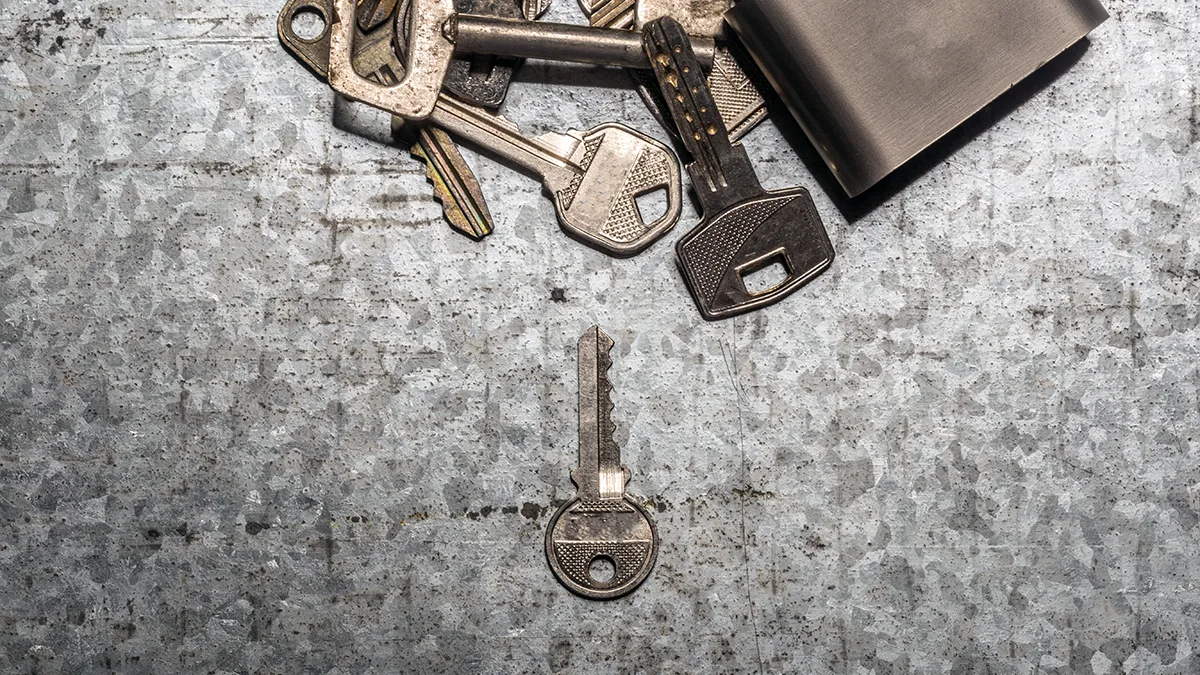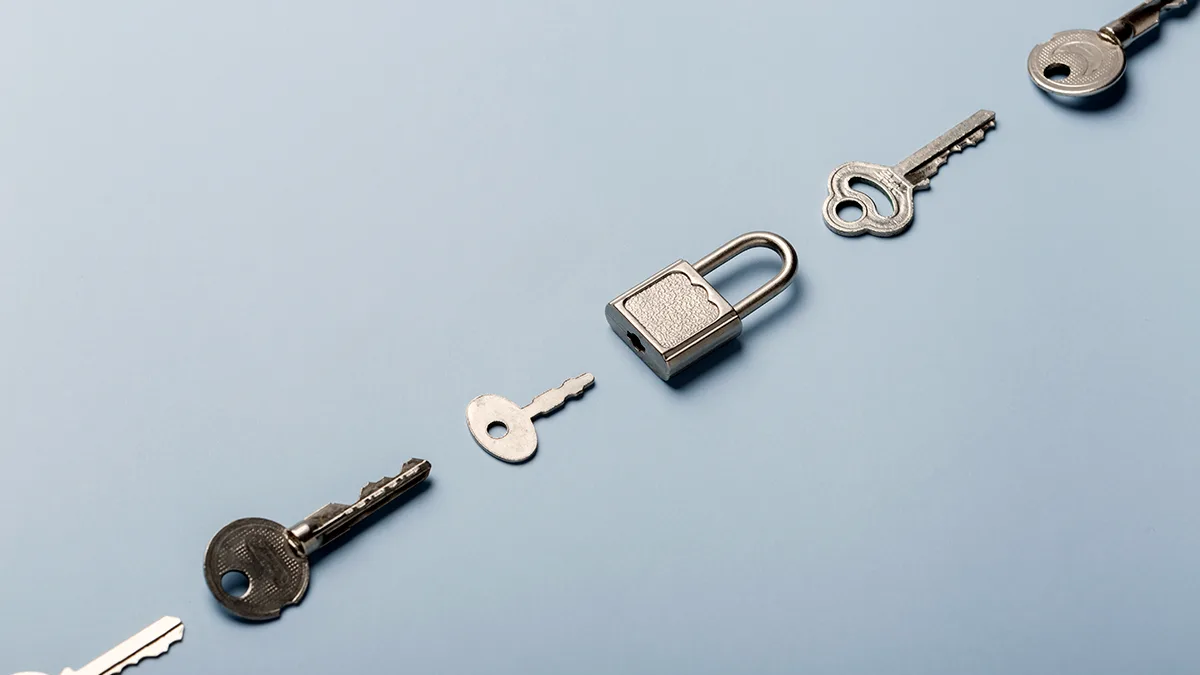The Hidden Costs of DIY Lock Repairs and How to Avoid Them. In a bustling city…
What to Do If Your Key Snaps in the Lock
What to Do If Your Key Snaps in the Lock. Experiencing a key snapping in the lock can be a frustrating and alarming situation.
Whether you are in the heart of London or in a quiet suburb, this unfortunate event can leave you feeling vulnerable and unsure about your next steps.
In this article, we will discuss the best course of action to take if your key snaps in the lock, how to avoid such situations in the future, and the importance of having a reliable locksmith on hand, particularly as we approach 2025.
Understanding the Problem
Before delving into solutions, it’s essential to understand why keys snap in locks.
Keys can break for various reasons, including:
- Wear and Tear:
- Over time, keys can become worn down, making them more susceptible to breaking.
- Poor Quality:
- Low-quality keys or locks may be more prone to snapping.
- Incorrect Insertion:
- Forcing a key into a lock can cause it to snap, particularly if the lock is jammed or dirty.
- Environmental Factors:
- Extreme temperatures can cause metal to contract or expand, leading to potential breakage.
Immediate Steps to Take
If you find yourself in the unfortunate position of having a key snap in the lock, follow these steps:
1. Stay Calm
It’s easy to panic in such situations, but remaining calm will help you think clearly and act rationally.
Take a deep breath and assess the situation.
2. Inspect the Lock
Carefully examine the lock to determine how much of the key is still inside.
If a significant portion of the key is exposed, you may be able to remove it yourself.
3. Use Pliers
If the broken key is protruding from the lock, you can try using a pair of pliers to grip the exposed part of the key.
Gently pull it out, being cautious not to apply too much force, as this may push the key further into the lock.
4. Lubricate the Lock
If the key is stuck, applying a lubricant such as WD-40 may help.
Spray a small amount into the lock and allow it to penetrate for a few minutes.
This can make it easier to remove the broken key.
5. Use a Key Extractor Tool
If you have access to a key extractor tool, this can be an effective way to remove a broken key.
These tools are designed specifically for this purpose and can often extract the key without damaging the lock.
6. Avoid DIY Solutions
While it may be tempting to use makeshift tools or methods, such as superglue or a coat hanger, these can often cause more harm than good. It’s best to avoid any DIY solutions that could damage the lock further.
When to Call a Locksmith
If your attempts to remove the broken key are unsuccessful, or if you are uncomfortable trying to extract it yourself, it’s time to call a professional locksmith. Here’s why:
Expertise and Tools
Locksmiths are trained professionals with the right tools and experience to handle such situations.
They can quickly and efficiently remove the broken key without causing damage to your lock.
Safety and Security
Attempting to remove a broken key yourself can lead to further complications, such as damaging the lock or even locking yourself out completely.
A locksmith will ensure that your property remains secure throughout the process.
Peace of Mind
Knowing that a qualified professional is handling the situation can alleviate stress and provide peace of mind.
You can rest assured that your lock will be in good hands.
Choosing a Locksmith in London
If you’re in London, it’s crucial to choose a reputable locksmith. Here are some tips for finding a reliable professional:
- Check Reviews:
- Look for locksmiths with positive reviews and testimonials from previous customers.
- Websites like Trustpilot and Google Reviews can provide valuable insights.
- Verify Credentials:
- Ensure the locksmith is licensed and insured.
- This protects you in case of any damages during the process.
- Ask for Quotes:
- Before hiring a locksmith, ask for a quote.
- This will help you avoid any surprise charges once the job is complete.
- Local Recommendations:
- Ask friends, family, or neighbours for recommendations.
- A trusted referral can often lead you to a reliable locksmith.
- Availability:
- Emergencies can happen at any time, so look for a locksmith that offers 24/7 services.
- This ensures you’ll have help whenever you need it.
Preventing Future Incidents
While it’s impossible to predict every situation, there are steps you can take to minimise the risk of a key snapping in the lock in the future:
1. Use Quality Keys and Locks
Invest in high-quality locks and keys.
While they may be more expensive upfront, they can save you money in the long run by reducing the likelihood of breakage.
2. Regular Maintenance
Have your locks inspected and maintained regularly by a locksmith.
This can help identify potential issues before they become significant problems.
3. Avoid Forcing Keys
Always insert your key gently and avoid forcing it into the lock.
If you encounter resistance, it’s best to stop and assess the situation.
4. Keep Keys in Good Condition
Regularly inspect your keys for signs of wear and tear.
If you notice any bending or cracking, replace the key immediately to prevent it from snapping.
5. Consider Key Duplication
Having spare keys made can be a lifesaver.
If one key breaks, you’ll have a backup to use while you address the issue.
Make sure to have duplicates made from a reliable source.
The Future of Locksmith Services in London
As we look ahead to 2025, the locksmith industry in London is likely to evolve with advancements in technology.
Here are some trends to watch for:
1. Smart Locks
With the rise of smart home technology, more homeowners are opting for smart locks that can be controlled via smartphones or keypads.
These locks often come with added security features and the ability to monitor access remotely.
2. Enhanced Security Solutions
As crime rates fluctuate, locksmiths will continue to develop more sophisticated security solutions to meet the needs of homeowners and businesses.
This includes advanced locking systems and security assessments.
3. Mobile Services
The demand for mobile locksmith services is likely to grow, allowing locksmiths to provide on-site assistance quickly and efficiently.
This is particularly important in urban areas like London, where time is of the essence.
4. Eco-Friendly Practices
As sustainability becomes a priority for many, locksmiths may adopt more eco-friendly practices, such as using sustainable materials for locks and keys.
5. Training and Certification
As the industry evolves, ongoing training and certification for locksmiths will become increasingly important.
This ensures that they remain up-to-date with the latest technologies and techniques.
Having a key snap in the lock can be a distressing experience, but knowing how to handle the situation can make all the difference.
From remaining calm and assessing the problem to calling a professional locksmith in London, taking the right steps can help you regain access to your property with minimal stress.
As we approach 2025, staying informed about locksmith services and advancements in security technology will better prepare you for any future incidents.
Remember, prevention is key; by maintaining your locks and keys and choosing quality products, you can significantly reduce the risk of encountering this frustrating situation again.




Comments (0)